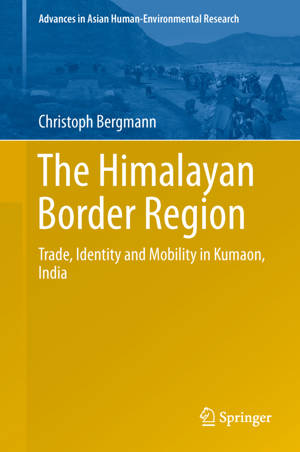
- Retrait gratuit dans votre magasin Club
- 7.000.000 titres dans notre catalogue
- Payer en toute sécurité
- Toujours un magasin près de chez vous
- Retrait gratuit dans votre magasin Club
- 7.000.000 titres dans notre catalogue
- Payer en toute sécurité
- Toujours un magasin près de chez vous
Description
Drawing from extensive archival work and long-term ethnographic research, this book focuses on the so-called Bhotiyas, former trans-Himalayan traders and a Scheduled Tribe of India who reside in several high valleys of the Kumaon Himalaya. The area is located in the border triangle between India, the Tibet Autonomous Region (TAR, People's Republic of China), and Nepal, where contestations over political boundaries have created multiple challenges as well as opportunities for local mountain communities.Based on an analytical framework that is grounded in and contributes to recent advances in the field of border studies, the author explores how the Bhotiyas have used their agency todevelop a flourishing trans-Himalayan trade under British colonial influence; to assert an identity and win legal recognition as a tribal community in the political setup of independent India; and to innovate their pastoral mobility in the context of ongoing state and market reforms. By examining the Bhotiyas' trade, identity and mobilitythis book showshow and why the Himalayan border region has evolved as an agentive site of political action for a variety of different actors.
Spécifications
Parties prenantes
- Auteur(s) :
- Editeur:
Contenu
- Nombre de pages :
- 195
- Langue:
- Anglais
- Collection :
Caractéristiques
- EAN:
- 9783319297057
- Date de parution :
- 26-04-16
- Format:
- Livre relié
- Format numérique:
- Genaaid
- Dimensions :
- 156 mm x 234 mm
- Poids :
- 467 g







